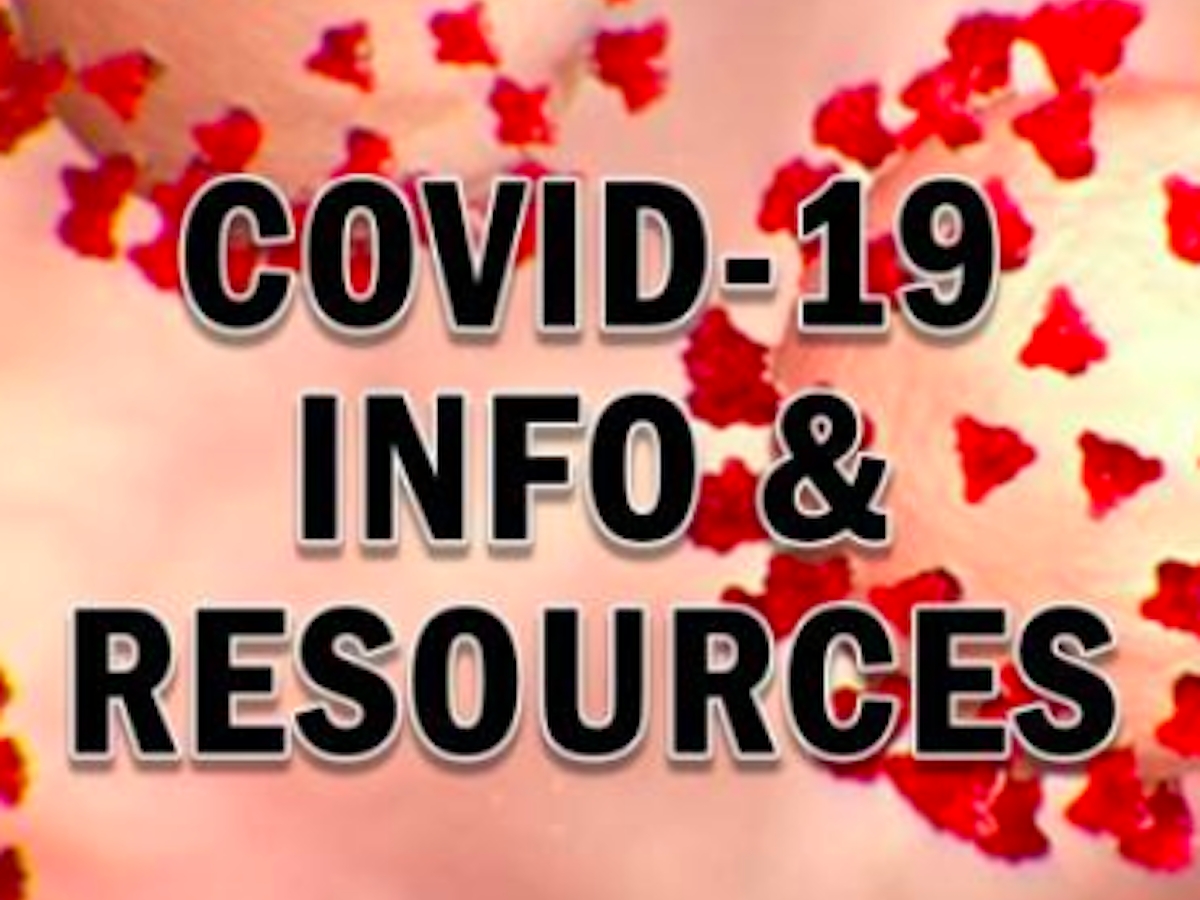Mayor Brennan recorded a video message for the community from home last evening. He thanked residents and small businesses for their personal efforts to reduce the spread of coronavirus by "flattening the curve" through through social distancing and staying at home. He's been very encouraged to see the level of small business support. Mayor Brennan also announce a new initiative in town to pool resources to provide help to those in need. This initiative, intended to address the personal welfare of residents during and after this pandemic, involves a cooperative effort between the municipality, the school and Merchantville's faith-based leaders. If you have needs or know of anyone with needs that are not being met please email This email address is being protected from spambots. You need JavaScript enabled to view it.. Emails will be monitored by the Borough and acted on by this cooperative.
Trusted Resources & Information
In this challenging time when Americans are under "shelter-in-place" IBM is offering free tools through weather.com, and an online dashboard, designed to help provide the latest details currently available from various official sources to people and businesses so they can access it easily on their computers or smartphones. Visit weather.com/coronavirus. The Centers for Disease Control and Prevention (CDC) maintains an iOS app and is one of the foremost sources of accurate information during disease outbreaks for anyone living in the U.S. You can also sign up for email updates from the CDC at this link. Your health insurance apps, such as United Healthcare or Aetna, help you to manage benefits and coverage. Another key resource is the media, but only trusted and professional outlets like The New York Times, The Washington Post or The Wall Street Journal. Local and state updates can be found on the Camden County website and at the NJDOH information hub. Stay informed - stay safe!
NJ Deaths Spike
On April 5th, just one month after recording its first infection, New Jersey now has at least 34,124 known cases of the coronavirus, including 846 deaths, as state officials announced 4,331 new cases and 200 new fatalities from a global outbreak that’s expected to keep worsening in the coming days. The state is testing only symptomatic people and reporting an average of only 5,000 tests a day, which officials attribute to a lack of manpower and supplies from the federal government. Governor Murphy has ordered residents to stay at home, called on people to keep practicing social distancing and washing their hands. “This pandemic is writing one of the greatest tragedies in the state’s history," Murphy said. Camden County currently has 481 cases, with 8 deaths.
Comparing Covid-19 To Influenza
As we enter April the common refrain heard from some officials and others who sought to downplay the severity of coronavirus in February and early March - that it wasn't worth worrying about, because more people were likely to get sick or die from the flu than COVID-19 - may not stand up any longer. Lisa Maragakis, M.D., M.P.H., senior director of infection prevention at Johns Hopkins, explains how the flu and COVID-19 are similar and how they are different. While both the flu and COVID-19 may be transmitted in similar ways, there is also a possible difference, COVID-19 might be spread through the airborne route, meaning that tiny droplets remaining in the air could cause disease in others even after the ill person is no longer near. The COVID-19 situation is changing rapidly. Since this disease is caused by a new virus, people do not have immunity to it, and a vaccine may be many months away. Doctors and scientists are working on estimating the mortality rate of COVID-19, but at present, it is thought to be higher than that of most strains of the flu.
The Harness Racing Connection
Three weeks after a Yonkers racing official became the first man from New Jersey to die of the coronavirus, horsemen continue to debate how widespread COVID-19 became in the harness racing industry. John Brennan, who was a fixture at Yonkers Raceway, became the first New Jersey resident to die from the coronavirus on March 10. Four members of a family with deep ties to harness racing then died over a six-day period in mid-March. State health officials have said the Fusco family deaths were connected to Brennan, who had an office in the heart of the facility where the Yonkers horsemen would congregate before races. While no one is blaming Yonkers Raceway for the outbreak among the racing community, some remain unconvinced transmission of those early cases occurred at the track.
Warning from Dr. Birx
Yesterday Dr. Deborah Birx emphasized that hotspots will see an increase in deaths over the next 6-7 days and the next two weeks will be crucial for the effort to flatten the curve and, unless it's essential to leave home during the next 14 days, Americans shouldn't. “This is the moment to not be going to the grocery store,” she said, “not going to the pharmacy, but doing everything you can to keep your family safe. And that means everybody doing the six-feet distancing, washing your hands.” She noted that she can tell by looking at the US curve of coronavirus cases that not every American is following the guidelines set out by the administration for people to stay home and be vigilant about washing their hands.








